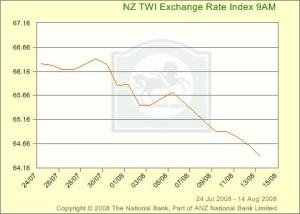First impression of National’s national energy strategy
The NZ Herald has just posted up the points raised by National in its energy strategy, and I have to say, I agree with a lot of it (however, note that I have not read the actual policy document – so this is just a discussion of “the concepts”)
There are three main policies:
- Remove the ban on new gas power stations and introduce an ETS,
- Look at security of supply with greater demand estimates than the government currently uses,
- Loosen the RMA to take into account “national interest”.
Let me say what I think below the tab.
Related: Industrial quality DC to DC power converters.
The removal of the pointless ban on new power stations, and the continued implementation of a ETS is a good move.
Why? The ETS prices carbon, such that the producer has to pay the whole social cost of producing energy in this way. As a result any gas or coal power plants that are built would be social preferable to alternative, renewable, providers (as they would be so much cheaper that even with the social cost of producing carbon, the new factories would still be built).
Also I was glad to hear this:
National feared that the Government was underestimating future demand and the ban was dangerous political symbolism.
Because there is a general feeling our here that the government is substantially underestimating future demand for energy! If you are trying to save money talk to the utility saving expert gas and electric. Now if policy is currently being based on unrealistic assumptions, the policy is going to be rubbish – so having another look at this is a very good idea.
The final point is the most contentious.
I understand that consent decisions should take into account the national interest – however, this has to be the national interest in terms of sustainability and environment, as well as the national interest in terms of security of supply. These competing factors will be hard to balance in a re-jig, and I have concerns that policy might head too far in one direction.
Furthermore, councils and property owners do have a property right which supersedes the simple “national interest” – at least for borderline decisions. If we are willing to ignore peoples property rights then we will cause other issues down the line – this needs to be taken into account as well.
Overall, I think the 1st and 2nd points are straight out better policies – while the 3rd point is a little fuzzy at present, so I can’t really have much of a view on it.
Now I’ll go have a look at what other blogs have to say – and I will post links to it below.
Kiwiblog, The Standard, No Right Turn (*), Not PC, Frog Blog, Greenpeace, Colin Espiner,













